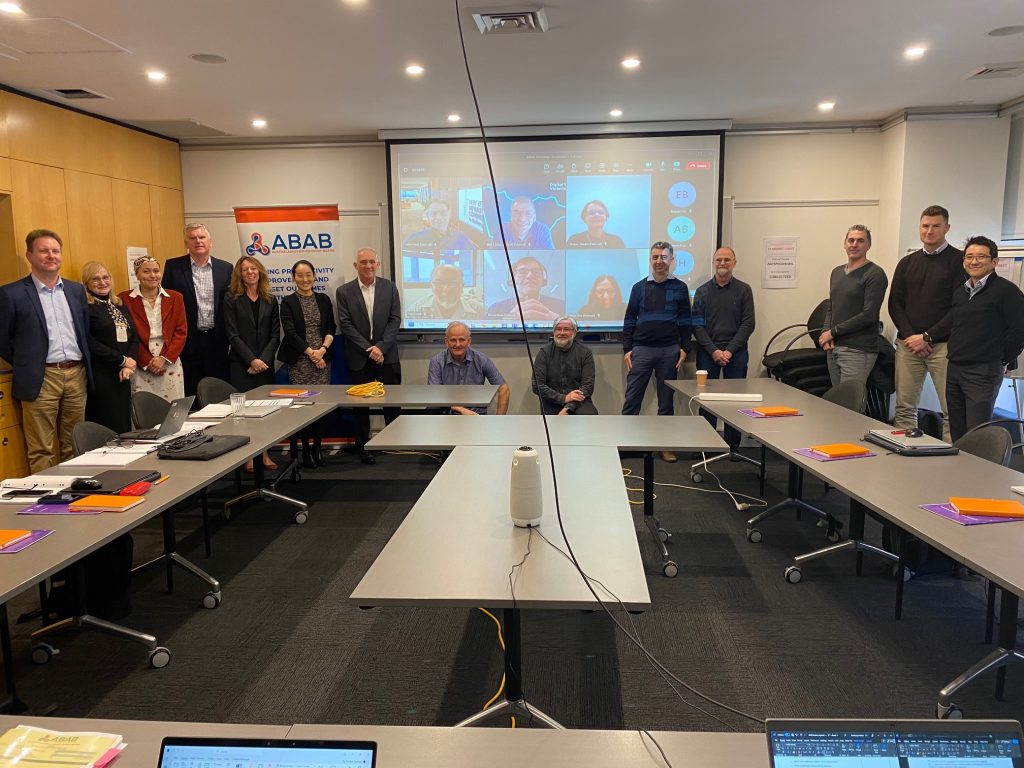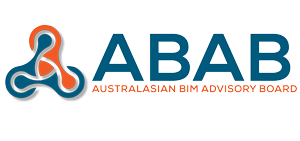The Australasian BIM Advisory Board releases two practical Guides to drive a consistent approach to digital enablement
The Australasian BIM Advisory Board (ABAB) held its annual in-person/virtual meeting for 2023 on 13 July. The meeting focused on strengthening harmonisation and standardisation of digital information management, and the power of digital enablement to improve environmentally sustainable infrastructure delivery. Two important Guides were endorsed for release to further drive a consistent ANZ approach to digital enablement.
“Digital enablement plays a significant role in aiding construction sustainability in various ways” said Andrew Curthoys, ABAB Chair and representative of the Australasian Procurement and Construction Council (APCC).
Digital enablement can aid to support energy and resource efficiencies through the optimisation of energy performance and significantly reduce waste and lifecycle maintenance through digital technologies promoting sustainability through efficient use of resources.
“As resilience and adaptability becomes increasingly more critical in Australia and New Zealand, digital enablers can help model the impact of climate change on buildings and assist in the design of solutions to adapt to these changes,” Andrew Curthoys said.
A workshop was convened to further define foundational principles and the strategic direction for driving harmonisation and standardisation in digital information management in the built environment across Australasia. The outcome of the session was agreement on scale and focus, being government departments and agencies. This important piece of work will be progressed by the Industry Collaboration Working Group where the great work of other stakeholders can be aggregated to lead a common cause.
“Driving harmonisation and standardisation where it delivers integration across the system, cost savings, and optimisation of processes provides confidence, consistency and certainty to industry to invest”, said Andrew.
Two new Guides to assist harmonisation and standardisation.
ABAB endorsed the release of the Harmonisation of Building Information Modelling and Digital Engineering Services Procurement Guide (Guide) that provides a process for project registration, assessment, prequalification, and selection for Building Information Modelling (BIM) and Digital Engineering (DE) service providers. The Guide is evidence-based, ensuring all measures are evaluated quantitatively.
“It is acknowledged that the size of the procurement spend in BIM and DE services is in its infancy however, is expected to grow quickly over the coming years, and as such this Guide aims to drive national consistency in how governments request provision of BIM and DE services”, commented Andrew Curthoys.
This Guide provides practical support for government agencies looking to procure BIM and DE services; and BIM and DE service providers trying to understand and bid for government work.
The second Guide endorsed for release by ABAB, is the Australasian BIM Benefits Report that provides the core benefit metrics to guide a government, agency, or project to collect data to measure benefits and supports meaningful comparison across projects.
“Government delivery agencies and major project teams are increasingly specifying BIM however, there are significant challenges to subjectively quantify the benefits of BIM through investment early in the lifecycle with the understanding that this leads to returns later on”, Andrew said.
Data collection is needed across a range of projects over time to calculate return on investment of BIM and understand its productivity benefits.
Both Guides will be made available on the ABAB website in the coming months.
The Australasian BIM Advisory Board established by the Australasian Procurement and Construction Council (APCC) and the Australian Construction Industry Forum (ACIF), together with the key standard-setting bodies, NATSPEC, buildingSMART and Standards Australia, promotes best practice and consistent approaches to BIM practices, standards, and requirements. ABAB guidance materials are available at: www.ABAB.net.au


0 Comments Leave a comment